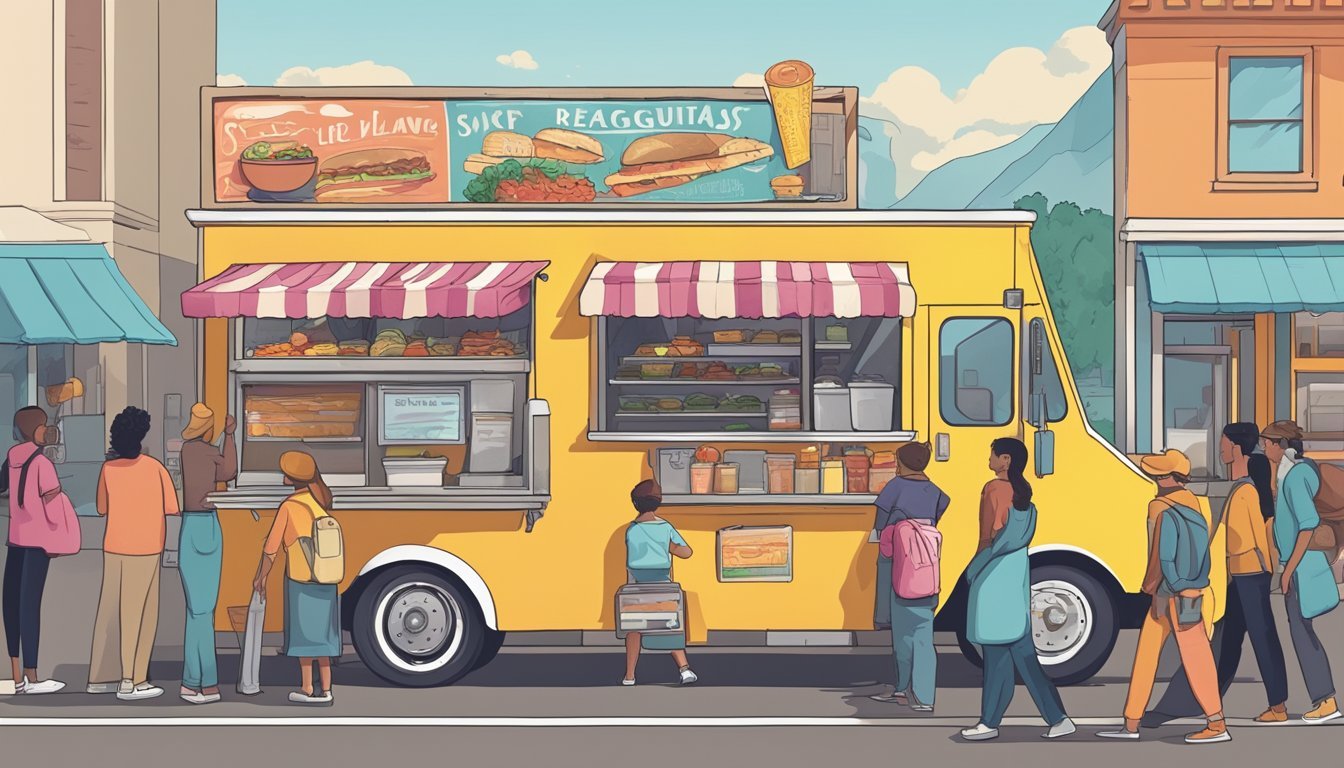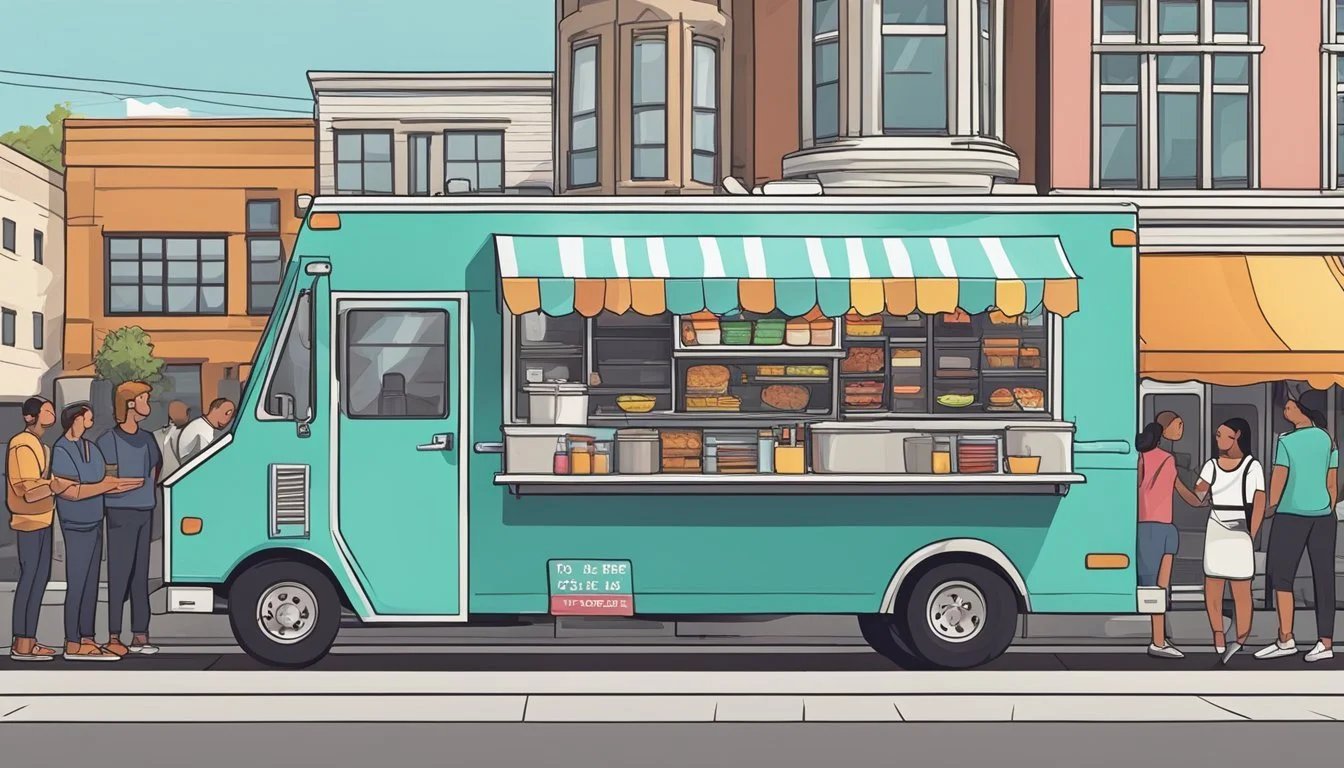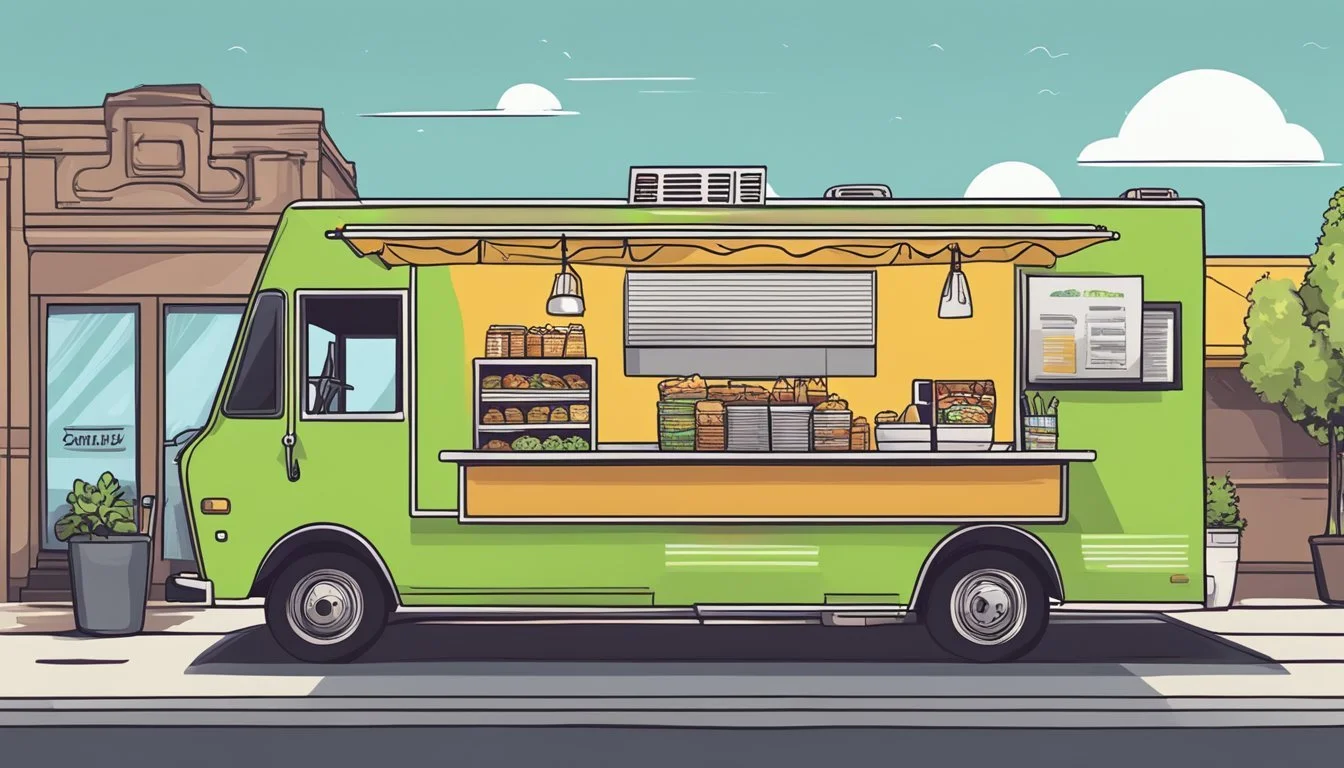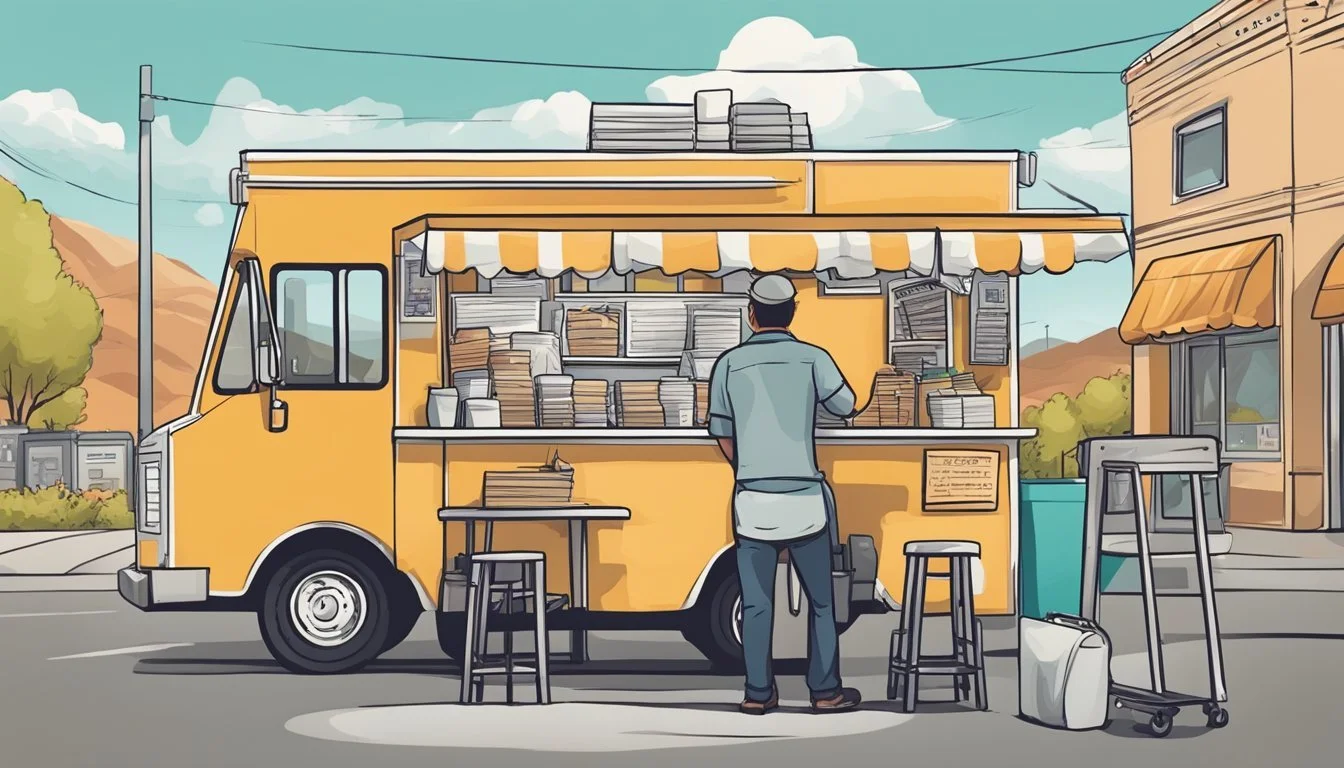Food Truck Laws in Utah
Navigating Regulations for Mobile Vendors
Utah's burgeoning food truck scene offers a smorgasbord of cuisines, providing an innovative avenue for chefs to share their culinary creations and for foodies to enjoy a dynamic dining experience. Operating these mobile restaurants, however, requires navigating a specific set of laws and regulations to ensure public health and safety. The legal framework guiding food truck operations includes obtaining the necessary permits, passing health inspections, and adhering to food safety standards.
The Utah Admin. Code R392-102 lays the groundwork for the permits and regulations governing the mobile food business. Food truck operators must secure a range of licenses and permits before hitting the streets, which include ensuring compliance with local health departments' requirements. This code stipulates the criteria for food preparation areas, proper waste disposal, and employee health guidelines, which are essential for maintaining a safe environment for both the staff and the customers.
Compliance with these regulations is monitored by local health departments that perform routine inspections. Food truck owners must be cognizant of critical control points such as temperature requirements for food storage and preparation. Safety inspections encompass not just food handling but also the mechanical soundness of the food truck itself to ensure the well-being of both the operators and the community at large. Through meeting the comprehensive requirements set forth by Utah Admin. Code R392-102, food trucks in Utah can provide a safe, enjoyable dining experience that enriches the local food culture.
Starting a Food Truck Business
When starting a food truck business in Utah, entrepreneurs should focus on meticulous planning from creating a solid business plan to understanding the legal framework of business structures. Securing financing and managing the administrative aspects of registration and EIN acquisition are also crucial to success.
Creating a Business Plan
Developing a business plan is the first step in launching a food truck venture. The plan should detail market analysis, menu offerings, marketing strategies, and financial projections. It acts as a roadmap guiding the business through its formative stages and helps in securing funding from investors or financial institutions.
Choosing a Business Structure
Choosing the right business structure is vital for legal and tax considerations. Options include a sole proprietorship, partnership, LLC (Limited Liability Company), or corporation. An LLC is popular among food truck owners due to its protection from personal liability and its tax benefits.
Securing Financing
Securing financing is often needed to cover the initial costs associated with starting a food truck business, such as purchasing the vehicle, kitchen equipment, and inventory. Options include small business loans, personal savings, or investment from partners.
Registration and Obtaining an EIN
The food truck must be registered with the state of Utah and obtain all necessary permits and licenses. After registration, an Employer Identification Number (EIN) is required for tax purposes and to open a business bank account. This number is unique to each business and is used by the IRS for tracking tax obligations.
Legal Requirements for Food Trucks
Starting and operating a food truck in Utah involves navigating a series of legal requirements to ensure compliance with business, health, and safety regulations. Operators must secure the necessary business licenses, obtain the right permits and inspections, and establish use agreements for commissary and restroom facilities, aligning with both local and state laws.
Obtaining Business Licenses
To legally operate a food truck in Utah, the owner must obtain a business license. This license is a fundamental requirement, and the process involves submitting an application accompanied by a fee to the municipal government where the business will operate.
Application Process: Submit business details and fee
Issuing Authority: Local municipality
Food Truck Permits and Inspections
Permits are necessary for food truck operations to ensure public health and safety. Alongside the health department's permit, operators in Utah must comply with inspections which cover the vehicle itself and the equipment used to prepare and serve food.
Permit Types: Health department, Vehicle safety
Inspection Focus: Food safety, Equipment standards
Commissary and Restroom Agreements
In Utah, food trucks are required to have a commissary agreement. This serves as a home base for the food truck where it can safely prepare and store food. Additionally, a restroom agreement is typically mandated to ensure access to bathroom facilities for the staff, meeting health codes.
Purpose: Food prep and storage, Staff needs
Documentation: Signed agreements with commissary and restroom providers
Local and State Laws Compliance
Food truck owners must adhere to a combination of local ordinances and state law, including regulations outlined in SB250. Regular updates to these regulations can occur, so staying current on both the local laws and the state's Mobile Business Licensing and Regulation Act is crucial.
State-Level Reference: SB250
Compliance: Up-to-date operation based on current laws and regulations
Health and Safety Standards
The state of Utah imposes strict health and safety regulations on food trucks, ensuring that the meals served to the public adhere to high standards. These regulations are in place to protect consumers by reducing the risks of foodborne illnesses and promote a safe dining environment.
Adhering to Health Department Regulations
Food trucks in Utah are required to comply with regulations established by the Utah State Legislature and enforced by local health departments. This includes obtaining a valid health department food truck permit and undergoing regular health and safety inspections. Political subdivisions recognize permits issued by other local health departments to facilitate operational mobility.
Implementing Food Safety Requirements
To meet the Utah food safety standards, food trucks must have a certified food safety manager on-site and all employees handling food must possess a current food handler permit. Equipment and processes used need to eliminate identified risk factors and are subject to inspection and evaluation by the Food Compliance Program.
Employee Health Policies
It is mandated that all food truck employees undergo training on proper hygiene and food handling techniques. They must report any health issues that could compromise the safety of the food, following protocols set by the Utah Department of Health. This ensures a workforce that is knowledgeable in maintaining high standards of food preparation.
Equipping for Safety and Sanitation
Food trucks must be equipped with the necessary facilities to maintain cleanliness and prevent contamination. This includes hand washing stations, proper storage for raw and cooked foods, and regular sanitation of all surfaces. The design and maintenance of equipment are guided by uniform standards for the prevention and control of health hazards.
Operational Considerations for Food Trucks
Managing a food truck in Utah requires thoughtful planning in key areas such as menu development, route establishment, inventory management, and marketing strategies. Adhering to local regulations and anticipating logistical challenges are essential for a successful mobile food business.
Developing Your Menu
Creating a menu is pivotal for any food truck, as it should reflect both the brand and the culinary preferences of the target market. Salt Lake City Food Truck Guide advises food truck operators to focus on a mix of unique dishes that can be efficiently produced and consistently high in quality. The menu should balance creativity with practicality, considering factors like preparation time and cost of ingredients.
Establishing a Vending Route
Determining a vending route involves more than choosing popular locations; it requires knowledge of local regulations, event scheduling, and customer traffic patterns. A successful vending route is typically a mix of high-foot-traffic areas, regular appearances at events, and partnerships with local businesses or venues.
Managing Inventory and Ingredients
Effective inventory management is crucial for maintaining the quality and consistency of food served. Operators must ensure regular sourcing and proper storage of ingredients, as reflected in Utah's guidelines for food truck operations. Inventory should be closely monitored to minimize waste and ensure that popular items are always available.
Building a Brand and Addressing Marketing
Branding and marketing are imperative for distinguishing a food truck in a competitive market. Clear branding includes a memorable name, a distinct visual design for the truck, and a presence on social media platforms. Marketing efforts might include collaborations with local businesses, updates on mobile food business regulations, and participation in community events to increase visibility.
Insurance and Risk Management
Operating a food truck in Utah involves various risks, from vehicular accidents to foodborne illnesses. Managing these risks is essential for the protection of both the business and the public. Comprehensive insurance coverage is a pivotal component of any food truck's risk management strategy.
Types of Insurance Required
Commercial Auto Insurance: This is mandatory for any food truck as it covers vehicle-related accidents. It typically includes collision, comprehensive, and liability coverage.
General Liability Insurance: This helps protect the food truck business from claims of bodily injury or property damage. Such an insurance policy can be critical if a customer falls ill due to food sold or gets injured as a result of the truck's operations.
Property Insurance: Given that a food truck contains valuable cooking equipment, property insurance can cover the cost of equipment if it's damaged in an event like a fire or theft.
Understanding Liability
Liability revolves around the food truck's legal responsibilities. If a customer falls ill from the food served, the business could be held responsible. This is where a Certificate of Insurance (COI) plays a crucial role. It serves as proof of insurance and typically needs to be presented to landlords or event organizers before a food truck can operate on their property.
For every food truck business, understanding and mitigating risks through adequate insurance coverage isn't just important—it's imperative for the business's longevity and legal compliance.
Specific Rules for Different Types of Mobile Food Businesses
In Utah, various types of mobile food businesses are subject to specific regulations tailored to their operations, ranging from ice cream trucks to those requiring stringent grease and fire safety measures.
Ice Cream Trucks
For ice cream trucks, operators must adhere to the Model Food Code as adopted by the State of Utah and local health departments. These trucks are required to have proper frozen storage to maintain ice cream at safe temperatures and should abide by local noise ordinances to avoid disturbances when playing music to attract customers.
Grease and Fire Safety Regulation for Food Trucks
Food truck operators must ensure that any cooking equipment is in compliance with fire safety standards. This includes regular fire inspections and having the necessary fire suppression systems in place, as described in the Food Truck Licensing and Regulation Act. Additionally:
Grease management: It is crucial to prevent grease build-up, which can be a major fire hazard. Operators should install grease traps and ensure regular cleaning.
Fire Safety Certification: Food trucks must pass fire inspections conducted by certified inspectors. This process includes the verification of proper installation and maintenance of cooking equipment.
Engagement with Regulatory Bodies
In Utah, food truck operators must navigate a complex network of regulations that involve consistent interaction with city and local health departments, as well as keeping up with legislative updates from committees like the Senate Business and Labor Committee.
Dealing with City and Local Health Departments
Food trucks in Utah must adhere to health and safety standards that are enforced by local health departments. These departments conduct inspections to ensure food trucks meet hygiene and food safety requirements. For example, a political subdivision inspecting a food truck for fire safety conducts the inspection based on criteria established by the Utah Fire Prevention Board. Local health departments also recognize inspections and licenses issued by other jurisdictions within the state, which simplifies the process for food trucks operating in multiple locations.
Senate Business and Labor Committee Involvement
The Senate Business and Labor Committee plays a critical role in shaping the food truck laws. During committee hearings, they review and discuss legislative proposals and amendments related to the industry. It is essential for food truck operators to stay informed about these discussions, as the outcomes can lead to changes in licensing and operating procedures. For instance, the committee was involved in the passage of amendments to the Food Truck Licensing and Regulation Act.







